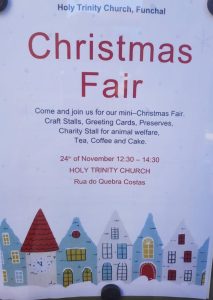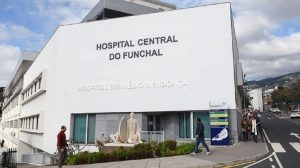A member of the Portuguese community in the United Kingdom may hold the key to curing António Ferreira who resides in Jersey and suffers from a rare type of cancer. As such, he is desperately searching for a compatible donor for a stem cell transplant.
The 40-year-old Madeiran was diagnosed in 2017 with Sézary syndrome, a cutaneous T-cell non-Hodgkin’s lymphoma that causes pain, itching, a burning sensation and redness of the skin. His only chance of survival is to have a DNA transplant.
Despite having four siblings doctors have ruled them out due to incompatibility and so a worldwide search for a compatible donor with the same genetic profile is underway, which is why many believe that the solution may lie within the Portuguese community.
According to Nigel Gordon, the public relations officer for the Deutsche KnochenMarkSpenderdatei (DKMS)- German Bone Marrow Donor Programme – “it is more likely that the compatible donor can be found from someone of a similar background.” The organisation had planned a series of awareness campaigns this year within the Portuguese community in London. However, these were put on hold due to the current pandemic, but they remain undaunted, and have launched a new appeal to attract more donors.
António Ferreira moved from Madeira to Jersey in 2008 where he worked as a gardener until he identified a red spot on his back. The initial biopsy did not find the cancer and it was treated as if it were eczema or dermatitis. Unfortunately, five years later, as his health deteriorated and other signs appeared including lumps on his body and deformed nails, and he was diagnosed with the rare type of lymphoma.
His wife, Osvalda Ferreira, said “In the early days he still tried to continue working to help his family, but he grew weaker and weaker.’ She now accompanies him to London every 15 days to undergo treatment to help alleviate his symptoms. These, however, were suspended, as were other innovative and experimental treatments due to the pandemic. At the end of the day, António Ferreira just wants to return to the job he loves, and have a normal life again with his wife and 14-year-old daughter.
The race is on to find a donor while his vital organs are still functioning and António’s life depends “On the help of someone they don’t even know.”
For those interested in becoming part of the donor programmed further information can be found at https://www.dkms.org.uk/en/tony]. All volunteers must be aged between 17 and 55 years old and once you have completed the registration process they will send you a saliva home test kit. The process only takes a couple of minutes and is similar to the Covid-19 test.
Once the sample is received by the laboratory, it will be analysed and its genetic profile identified. This will be than added to a worldwide database. Although the chances of finding a donor are slim, the organisation is asking for as many Portuguese citizens to register as possible.
According to DKMS, Asians or people of other ethnic backgrounds are three times less likely to provide a compatible donor than Caucasian citizens in northern Europe.
Samantha Gannon
info at madeira-weekly.com




